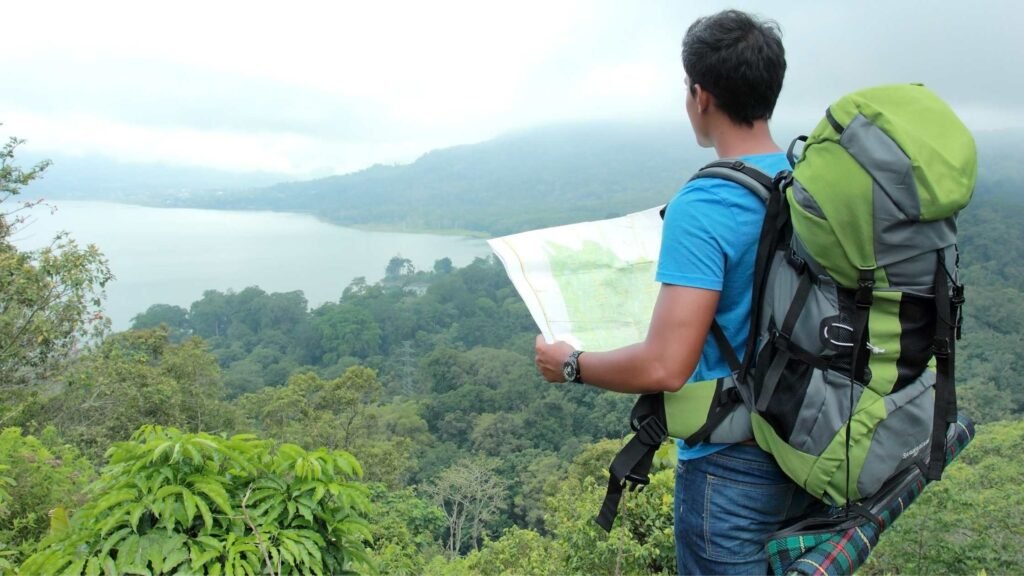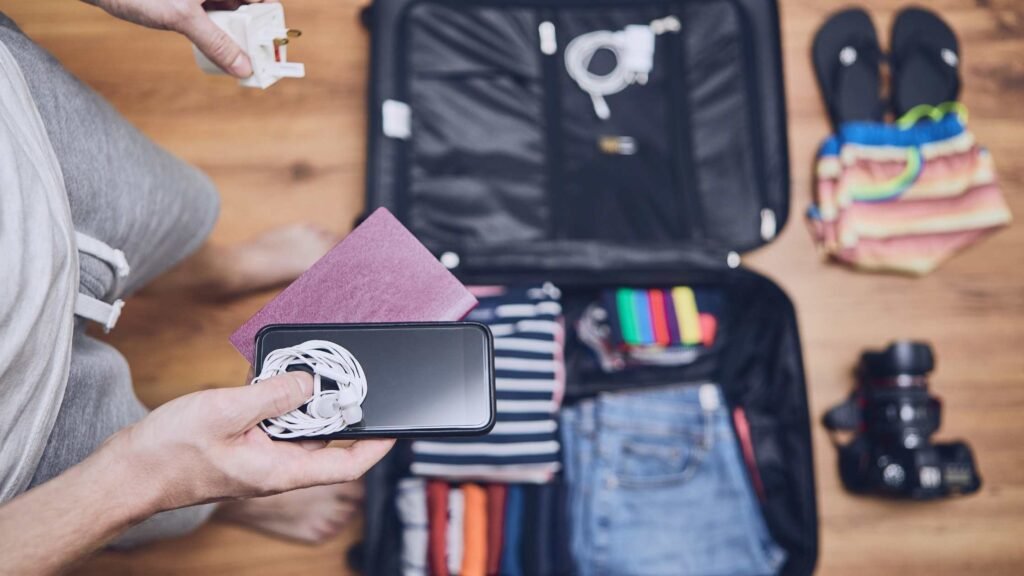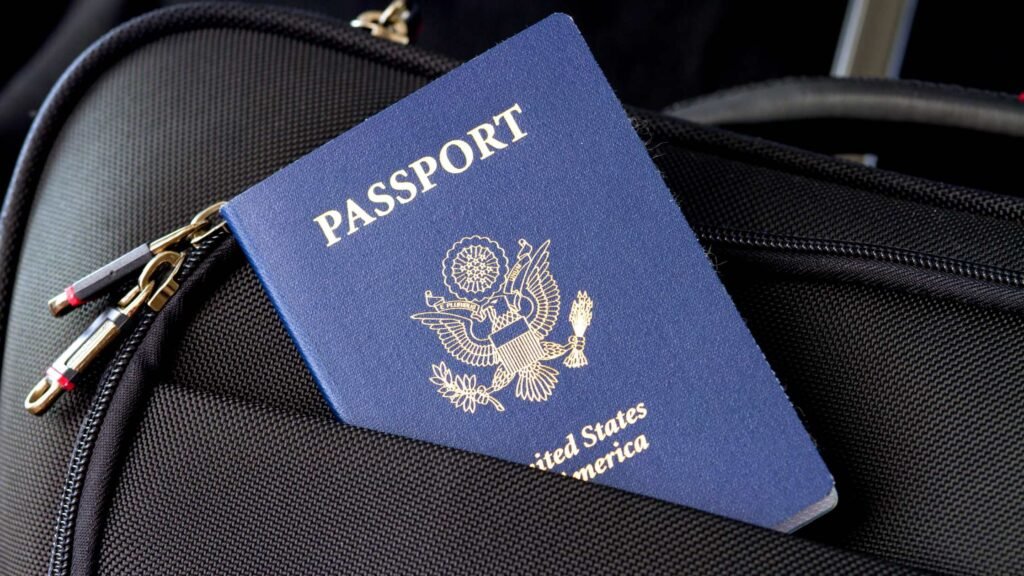I will explain travel tips about ” when to start packing for vacation”?
Start packing for vacation at least one week in advance. Aim to finalize your suitcase a couple of days before departure.
Embarking on a vacation requires preparation and logistics to ensure a stress-free experience. Early packing reduces last-minute scrambles and oversights, allowing travelers to double-check essentials and travel documents. It affords time to consider weather conditions and planned activities, ensuring you pack appropriate attire and gear.
Beginning the process a week ahead gives you ample opportunity to purchase any additional items you may need. Completing your packing a few days prior allows you to spend the final hours before your trip relaxing, rather than rushing.
This approach not only facilitates a calm mindset as you head to your destination but also helps avoid luggage mishaps and frantic searches for misplaced items. Adhering to this timeline guarantees that your vacation starts on the right foot, with everything you need securely in place.
Table of Contents
Toggle- Introduction To Vacation Planning
- The Early Bird Strategy
- Packing Closer To Departure
- Destination-specific Considerations
- Travel Purpose And Its Impact On Packing
- Creating A Personalized Packing Checklist
- Efficiency Tips For Packing
- Managing Last-minute Packing Stress
- The Role Of Technology In Packing
- Legal And Regulatory Factors
- Final Review And Pre-departure Checklist
- Frequently Asked Questions On When To Start Packing For Vacation
- Conclusion
Introduction To Vacation Planning

Vacation planning is an exciting phase, filled with anticipation and visualized relaxation. It starts with daydreaming about destinations. Then, you dive into booking flights and accommodations.
But one aspect often left until the last minute is packing. Knowing when to start packing for vacation is very essential. It sets the tone for a stress-free journey, ensuring nothing is left behind.
Understanding The Pre-vacation Timeline
Effective packing starts with a timeline. Think of it like a countdown to your departure. This timeline includes:
- Picking outfits: This happens weeks ahead.
- Buying essentials: Do this at least one week in advance.
- Packing bags: Begin this process a few days before leaving.
Creating a checklist aligns with your timeline. It helps to remember all items.
Factors Influencing Packing Time
Different trips require different packing times. Think about these factors:
- Destination: A beach holiday differs from a ski trip.
- Duration: For longer stays, you pack more items.
- Activities: Have plans? Pack accordingly.
- Weather: Check forecasts, and pack suitable clothes.
Each factor changes your packing list. Adapt it to your travel plans.
The Early Bird Strategy
Packing for vacation excites and stresses many travelers. The Early Bird Strategy is about starting early. This tactic eases stress and boosts holiday excitement.
Advantages Of Packing Well In Advance
Packing beforehand has clear perks:
- Less stress, as you avoid last-minute rushes.
- Better organization leads to not forgetting essentials.
- You have time for strategic thinking about what you need.
- Early checks on travel documents prevent surprises.
- The extra time allows for washing or purchasing items.
Advance packing can also save money. Last-minute purchases are often costly.
When To Start Packing For Different Trip Lengths
Different vacations require different packing times.
| Trip Length | When to Pack |
|---|---|
| Weekend | 3-4 days ahead |
| Week-long | 1 week ahead |
| Two weeks or more | 2-3 weeks ahead |
First, check the weather, then plan outfits. Start with essentials: documents, electronics, and medications. Next, tackle clothing and personal items.
Packing Closer To Departure

“Packing Closer to Departure” often strikes as an afterthought. Many travelers find themselves grabbing items at the last minute. Some even prefer the adrenaline rush of a ticking clock! But does this approach work? Let’s explore the pros and cons.
The Case For Last-minute Packing
Packing at the eleventh hour might sound risky. Yet, it comes with unexpected perks.
- Less Overthinking: No time for second-guessing every choice.
- Fresh Clothing: Pack clothes right out of the laundry.
- Updated Weather Checks: Tailor your pack list to the latest forecast.
- Decreased Waiting Time: Avoid living out of a suitcase days before your trip.
Challenges Of Packing Just Before Leaving
Last-minute packing may allure with spontaneity. Yet it’s not without its drawbacks.
| Challenge | Impact |
|---|---|
| Increased Stress: | The rush can lead to anxiety and forgetfulness. |
| Limited Time: | Forgetting essentials becomes more likely. |
| No Room for Errands: | Need something? Stores may be closed. |
| Packing Mistakes: | Poor decisions made in haste can upset your trip. |
Plan smartly, whether you pack early or late. Keep a checklist handy to ensure nothing slips through the cracks.
Destination-specific Considerations
Smart travelers tailor their packing plans to their destination for a stress-free vacation. Unique factors tie directly to where you’re going. Let’s explore how your destination shapes your packing timeline.
Adjusting Your Packing Schedule Based On Destination
- Long-distance trips often need advanced planning, starting weeks ahead.
- Frequent flyer to a familiar place? A few days might suffice.
- Heading to a remote location? Check for special gear early on.
Climate And Seasonal Factors Affecting Packing Time
Climate plays a huge role in packing. Here’s what to consider:
| Season | Climate | Packing Start Time |
|---|---|---|
| Winter | Cold & Snowy | 2-3 weeks before for heavy clothes and gear |
| Summer | Hot & Humid | 1-2 weeks before to gather light attire |
| Rainy Season | Wet & Unpredictable | Prioritize waterproof items early |
Travel Purpose And Its Impact On Packing
It is knowing why you are traveling guides your packing process. Your destination, activities planned, and trip length influence what you bring. Start packing based on these factors well before departure. This avoids last-minute stress and ensures a smooth start to your journey.
Business Vs. Leisure Travel
Business trips demand a professional wardrobe and tech gear. Pack a suitcase with smart attire, keeping in mind meeting schedules and after-hours networking events. Essential tech includes laptops, chargers, and presentation materials.
For leisure trips, think of comfort and convenience. Include casual clothes, personal items, and entertainment options like books or a tablet. Consider the climate and pack accordingly, from swimwear to winter coats.
Specialized Equipment And Attire For Activity-based Trips
Trips focused on activities such as skiing, diving, or hiking require specialized gear. Organize your equipment checklist early to ensure you have all the necessary items.
- Activity-specific clothing: Wetsuits for diving or insulated jackets for snowy adventures.
- Essential gear: Skis, boots, or snorkeling equipment, for example.
- Safety items: Helmets, knee pads, or life jackets, based on the activity.
Pack these specialized items well in advance. This ensures you have everything for a successful and enjoyable experience.
Creating A Personalized Packing Checklist
Packing for vacation can stir a mix of excitement and dread. Deciding what to bring often feels overwhelming. Start with a personalized packing checklist. This ensures nothing important gets left behind.
Tailor it to your destination, the length of your trip, and your activities. Prepare your list at least a week before departure. This allows time to gather items and buy anything missing.
Essentials For Every Trip
Some items are must-haves for any vacation. Whether you’ll lounge on a beach or explore a city, pack these essentials:
- Travel documents (passports, ID, tickets)
- Medications (prescription, over-the-counter, first-aid)
- Money (cash, cards)
- Electronics (phone, charger, adapters)
- Basic toiletries
- Clothing (consider the weather)
Customizing Your Checklist According To Travel Needs
Every trip is unique, so personalize your checklist. Consider your destination’s climate, cultural norms, and activities planned. Here’s a guide to tailor your packing:
- Check the weather: Add items like a raincoat for wet climates or thermal wear for cold regions.
- Research local culture: Ensure clothing choices respect local traditions.
- Plan for activities: Include gear for hiking, swimming, or other specific adventures.
- Think comfort: Don’t forget comfy shoes and casual wear for downtime.
Create a checklist table. Here’s what it might look like:
| Item | Essentials | Personal |
|---|---|---|
| Travel Documents | Passport, tickets | Visa paperwork, travel insurance |
| Electronics | Phone, chargers | Camera, spare batteries |
| Health & Wellness | Medications, first-aid | Sunscreen, insect repellent |
Remember: As you adapt your checklist, review it to ensure all essentials are included. Now, you’re all set for a stress-free start to your journey.
Efficiency Tips For Packing

Ready for vacation but dreading the pack? Good news! The perfect time to start packing is just around the corner. Packing doesn’t need to be a hassle. With a few efficiency tips, it can be a breeze. Let’s dive into some smart packing strategies that will save you time and stress.
Packing Hacks And Space Savers
Maximize every inch of your suitcase with these simple packing hacks. They will free up space and keep your belongings organized.
-
- Roll clothes instead of folding to save space and prevent wrinkles.
- Use compression bags to shrink down bulky items like jackets or sweaters.
- Shoe bags double as extra pockets for storing chargers or socks.
- Fill empty eyeglass cases with small jewelry or cables.
Stack bras to maintain shape and save space.
Organizational Tools For A Smoother Packing Process
Keep everything in its place and find things quickly with these organizational tools:
| Tool | Use |
|---|---|
| Packing cubes | Group items by type or outfit. |
| Waterproof pouches | Separate liquids to avoid spills. |
| Electronics organizer | Secure cables and chargers. |
| Travel wallet | Store passports and documents. |
Remember to label your cubes and pouches for even faster access. Make a list of items as you pack them. This method saves time both during packing and while on your trip.
Managing Last-minute Packing Stress
Managing Last-Minute Packing Stress often turns what should be an exciting run-up to vacation into a whirlwind of turmoil. Have you ever found yourself throwing clothes into your suitcase hours before your flight? That last-minute rush not only increases your anxiety but also raises the chance of forgetting something important.
Strategies To Avoid Panic Packing
Adopting a few smart strategies can spare you from the dreaded panic pack. Here’s how:
- Start Early: Begin packing at least a week before departure.
- Create a Checklist: List essentials first to ensure they’re packed.
- Prep Your Travel Kit: Keep travel-sized toiletries ready to go.
- Select Outfits Ahead: Decide on and set aside your outfits.
- Repeat Essentials Check: Double-check your list the night before.
Dealing With Unforeseen Delays And Disruptions
Sometimes, no matter how well you plan, delays and disruptions happen. Keep calm with these tips:
- Spare Time Buffers: Plan for unexpected events by packing days ahead.
- Essentials First: Prioritize packing vital items to ease worries.
- Use Packing Cubes: Sort items to find things quickly if rearranging is needed.
- Maintain a Positive Attitude: Remind yourself that most forgotten objects can be replaced.
The Role Of Technology In Packing

Preparing for a trip can stir a mix of excitement and dread. Technology now plays a vital role in streamlining this process. With advanced tools at our fingertips, packing becomes less of a hassle and more of a strategic operation. Let’s explore how apps and gadgets have revolutionized the way we pack for vacations.
Apps And Gadgets To Simplify Packing
In the digital age, a plethora of apps and gadgets offer invaluable assistance. They ensure you never leave essentials behind. Excited about your trip? Check out these innovations:
- Packing List Apps: Organize your suitcase with a tap. They provide customizable checklists tailored to your journey type.
- Portable Luggage Scales: Avoid excess baggage fees. These gadgets offer precise weight measurements of your bags.
- Gadget Organizers: Keep cords and chargers tangle-free. They come in handy to quickly find your tech essentials.
The Future Of Packing: Smart Luggage And Automation
Imagine a suitcase that knows what you need to pack. This is not far from reality:
- Smart Suitcases: With built-in scales, GPS, and charging ports, they keep you connected and worry-free about baggage weight.
- Automated Packing Systems: Future systems might pack for us, using pre-set preferences.
With each innovation, we move closer to a seamless travel experience. Stay tuned for next-gen tech that could redefine the packing game!
Legal And Regulatory Factors

Preparing for a vacation means more than deciding what to pack. Different countries have various legal and regulatory requirements. Thus, understanding these is vital. Start packing with the knowledge of what’s allowed and what’s not. This knowledge ensures a hassle-free journey from start to finish.
Navigating Airline Luggage Policies
Each airline has specific luggage rules. They dictate weight limits, sizes, and fees for extra bags. Always check your airline’s website before packing. Look for the most updated information on their policies. This avoids unwanted surprises at the airport. Airlines may also have restrictions on certain items. These could be hoverboards or lithium batteries.
- Check size and weight limits: Find details on carry-ons and checked luggage.
- Read about extra fees: Learn about costs for overweight or additional bags.
- Search for restricted items: Avoid packing banned accessories.
International Regulations: Customs And Prohibited Items
International travel requires knowing more regulations. Each country has different customs rules. Some items can lead to heavy fines or even legal trouble if brought across borders. Start by visiting the customs website of your destination country. Learn what you can and cannot bring in.
| Item Category | Common Restrictions |
|---|---|
| Food | Fresh fruits, vegetables, and meats often have restrictions. |
| Plants | Soil, seeds, and plants may be prohibited. |
| Medication | Certain prescriptions require documentation. |
| Cultural Artifacts | Items of cultural significance might need special permits. |
For a smooth process through customs, follow these steps:
- Make a checklist: Reference the customs information to create your list.
- Verify medication rules: Carry a doctor’s prescription where needed.
- Understand duty fees: Know the value of items you need to declare.
Final Review And Pre-departure Checklist
The final review and pre-departure checklist mark the moment before the vacation begins. It’s a critical step to ensure nothing important is left behind. By this stage, your bags should be packed, but a meticulous look at what you’ve packed and the state of your travel documents could save you from future headaches. Follow this guide for peace of mind as you count down the hours to your departure.
Double-checking Essentials And Documents
Essentials and documents are the backbone of a smooth travel experience. Missing these can lead to setbacks even before your journey begins. Ensure the following items are checked off:
- Passport and ID – Checking expiration dates and necessary visas.
- Travel tickets and confirmations – Flights, hotels, and transfers.
- Insurance documents – Health and travel, for unplanned events.
- Credit cards and cash – Telling banks about travel plans prevents fraud alerts.
- Emergency contacts and info – Keep a list separate from your phone.
- Chargers and adapters – Keeping devices powered up.
Print copies of essential documents and store them in different spots in your luggage. Electronic backups, such as scans sent to your email account, should also be made.
Embracing Peace Of Mind: The Final Once-over
With the essentials double-checked, give your luggage a final once-over. This includes:
| Category | Items |
|---|---|
| Clothing | Outfits, sleepwear, swimwear, and undergarments. |
| Toiletries | Toothbrush, hair-care products, and skin essentials. |
| Health | Medications, first-aid kit, and sun protection. |
Revisit each category and check for items that often get side-lined, like sunglasses or reading material. The balance between over-packing and leaving behind necessities is crucial. Tighten your luggage straps, give a reassuring pat on the bag, and breathe — it’s nearly go-time!
Frequently Asked Questions On When To Start Packing For Vacation
How Early Is Too Early To Start Packing For A Trip?
Begin packing for your trip at least a week in advance to avoid stress and ensure you include all essentials.
When Should I Start Preparing For Vacation?
Begin preparing for your vacation at least 2-3 months in advance. Early planning ensures better deals, availability, and necessary travel documents.
When Should I Start Packing For A Month-long Vacation?
Start packing for a month-long vacation at least two weeks in advance. This allows ample time for laundry, shopping, and packing without rushing.
When Should You Start Packing For A 2-Week Vacation?
Begin packing for a two-week vacation at least one week before departure to ensure a stress-free preparation process. This allows ample time for laundry, shopping, and avoiding last-minute rushes.
Conclusion
Embarking on a vacation requires thoughtful preparation. To avoid last-minute stress, start packing at least a week in advance. Remember, creating a checklist can streamline the process. Tailor your packing schedule to the trip’s length and complexity. Safe travels and happy packing!



